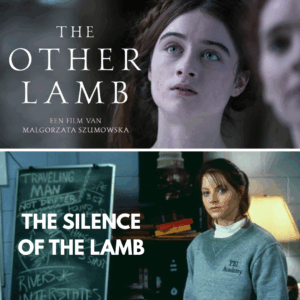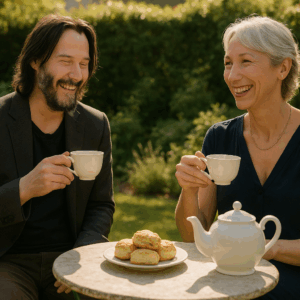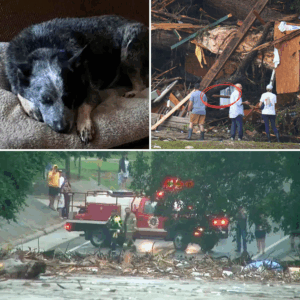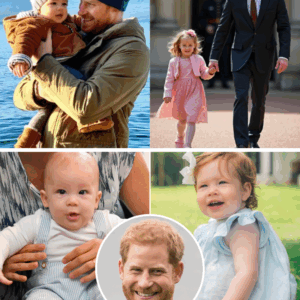At 10:35 AM on Monday, July 28, 2025, Prince Harry, the Duke of Sussex, has sparked intrigue with a secretive three-day visit to Botswana, during which he was reportedly uncontactable, cutting off communication with the outside world. The 40-year-old royal, who stepped back from royal duties in 2020 and relocated to Montecito, California, with his wife Meghan Markle, embarked on this solo journey earlier this month, prompting speculation about its purpose. Was this a heartfelt reunion with long-time friends and a chance to recharge, or a deliberate retreat from the pressures of his high-profile life alongside Meghan? As the couple navigates financial strain following the end of their Netflix deal and public backlash to their media ventures, this off-grid escape raises questions about Harry’s personal state and the dynamics of his marriage, challenging the polished narrative of their post-royal life.
The trip, first revealed by The Mail on Sunday on July 27, saw Harry spend a week in Botswana, with three days spent entirely off the grid. During this period, he was unreachable by phone, email, or text, a stark departure from his usual connectivity. Sources suggest he reconnected with Tania “TJ” Jenkins and Mike Holding, a couple he has described as his “second family” since his youth, when he began visiting the African nation. Jenkins and Holding, who played a pivotal role in Harry’s life before meeting Meghan, featured briefly in the couple’s 2022 Netflix docuseries Harry & Meghan. A source told the publication, “It was a good moment for Harry to take some time away from everything, enjoying total peace of mind and being somewhere so remote that he couldn’t even get emails or texts or calls.” This framing paints the visit as a nostalgic retreat to familiar ground, where Harry has a history of conservation work and personal milestones, including his 2016 trip with Meghan for their third date.
Botswana holds a special place in Harry’s life, a connection dating back to his teenage years when he first visited with friends like Jenkins and Holding. The country’s vast wilderness, where he has supported initiatives like Rhino Conservation Botswana, offered a sanctuary during his royal years. His 2016 journey with Meghan, detailed in Harry & Meghan, saw them camping under the stars for five days, a pivotal moment that deepened their bond. Returning alone in 2025, however, shifts the context. The extended stay—beyond his typical short trips—and the decision to go off-grid suggest more than a routine visit. Harry’s recent challenges, including the non-renewal of the couple’s $100 million Netflix deal and staff cuts at Archewell Productions, may have amplified his need for solitude, raising the possibility that this was an escape from mounting pressures.

The establishment narrative leans toward a charitable and personal reunion, with Kensington Palace historically framing such trips as private working visits tied to Harry’s patronage roles. Yet, this portrayal overlooks the timing and Harry’s current circumstances. The couple’s financial outlook is precarious, with annual expenses of $4 million outpacing earnings from dwindling inheritance and stalled projects like Meet Me At The Lake. Meghan’s lifestyle brand, American Riviera Orchard, remains unprofitable, and the second season of With Love, Meghan, due this fall, faces uncertain viewership after its modest 5.3 million-hour debut. Posts found on X speculate that Harry sought respite from these strains, with some suggesting a break from Meghan’s high-profile ambitions. The lack of her presence, despite their past shared trips, fuels this narrative, though no evidence confirms marital discord.
Harry’s off-grid choice also invites scrutiny of his mental state. His 2023 memoir Spare detailed struggles with anxiety and the toll of royal life, themes echoed in his Botswana visits, where he found solace in nature. The recent backlash to their Netflix trailers—over 400,000 dislikes on Harry & Meghan promos—has intensified public criticism, with social media calling their content “irrelevant.” This pressure, coupled with Meghan’s focus on her brand and the couple’s isolation from the royal family, might have driven Harry to seek the “total peace of mind” described by sources. The three-day blackout, longer than his usual disconnects, suggests a deeper need to unplug, potentially from both media scrutiny and domestic dynamics.
The establishment’s silence on the trip’s purpose, consistent with its policy on private engagements, contrasts with public speculation. Some view it as a strategic move to reconnect with African roots ahead of a possible 2027 Invictus Games reunion in Birmingham, where Botswana ties could bolster his profile. Others, however, see it as a flight from Meghan’s orbit, where her media ventures and past royal critiques have drawn ire. The couple’s 2020 exit from royal duties, intended to forge financial independence, now appears a double-edged sword, with their Hollywood dream faltering. Harry’s solo trip might reflect a desire to reclaim an identity separate from the “Sussex brand,” a notion supported by his historical solo charity visits, like the 2018 Rhino Conservation trip.
Critically, the narrative warrants deeper examination. The establishment’s emphasis on charity glosses over personal motivations, possibly to protect the couple’s image or avoid reigniting royal tensions. The black car sighting in the unrelated Diogo Jota crash echoes a theme of overlooked details, urging scrutiny of whether Harry’s trip masked personal strain. Meghan’s absence, while not unusual given past solo trips, contrasts with their 2016 Botswana romance, hinting at evolving priorities. Sources close to the couple have not addressed this, leaving room for speculation about whether the trip was a planned escape or an impromptu retreat.
Public reaction, drawn from web discussions, splits between empathy and skepticism. Some admire Harry’s return to Botswana as a return to authenticity, citing his conservation legacy. Others, particularly on X, mock it as a “grift” or an escape from Meghan, with comments ranging from humorous jabs to serious allegations of marital tension—claims lacking evidence. The establishment’s focus on his past charitable work sidesteps these sentiments, possibly to maintain a positive royal narrative amid Charles’s health concerns and William’s rising influence.
As Harry returned from Botswana, the trip’s impact remains unclear. His recent July 9 summit with King Charles’s aides suggests a parallel effort to mend royal ties, driven by fears of exile under William’s future reign. This duality—seeking peace with family while retreating alone—underscores a man navigating conflicting pressures. Whether Botswana offered a brief respite or a deeper escape, it highlights the fragility of Harry’s post-royal life. With financial and public challenges mounting, his next moves—whether leaning on old friends or redefining his role—will shape his future, leaving the true purpose of those three silent days open to interpretation.





